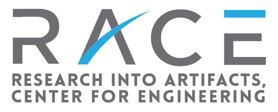[:ja]
次世代モノづくりでは、社会の潜在的なニーズを的確に把握し、それに対応した提供価値を具体的に提示する能力が求められます。この際には、作り手が有する技術drivenではなく、使い手を起点とした、その価値を最大化することに適切な手段を研究、開発、利用することが重要です。「モノ・サービスの使い手、作り手、関係者、さらにはそれらが生み出すモノ・サービスすべて」を社会と考えると、その中で人が人工物をとらえるしくみ(認知機構)の解明が必須です。これには人の認知過程を扱う心理学の知見をも用いた、文理融合型の研究が必要です。人がモノ・サービスを扱う際の主な特性としては、ユーザビリティ(使いやすさ・使いにくさ)や嗜好(好き・嫌い)、態度(主体的・受動的)が考えられ、これらの関係が適正化されなければなりません。たとえば、スマートフォンと自動車は共に有益ですが、その不適切な利用が「ながら運転」という弊害を生じさせる危険性があります。本部門では、次世代モノづくりで創造されたモノ・サービスが、人や社会と適正に融和し受け入れられるために、人がモノをどう認知し、モノとどう相互作用するかを解明し、人、社会に資する人工物つくりに役立てる取り組みをおこなっています。
[:en]
For the next generation manufacturing, the ability to accurately understand the potential needs of the society and present the value offers that correspond with these needs is required. For such an ability, it is important to research, develop, and employ the method that is user-driven and maximizes their values instead of the method driven by the technology of the creator. If we understand the society as “the entirety of users, creators and everyone involved in the products and services, and all other products and services generated by these”, it is necessary to elucidate the mechanism of how people understand artifacts (cognitive mechanism). A research that integrates arts and science that includes psychology, which studies human cognitive process, is required for achieving this. The main characteristics of people using products/services include the usability (easy/difficult to use), taste (like/dislike), and attitude (active/passive), and hence, their relationship must be optimized. For instance, smartphones and cars are mutually beneficial. However, their inappropriate combination can cause the danger of “distracted driving”. At this department, we are conducting researches to elucidate how human recognizes artifacts and interacts with them in order for the products/services created through the new generation manufacturing to be optimally integrated into and accepted by the people and the society, and contribute to the production of artifacts beneficial to these.
[:]
Cognitive Mechanisms Division
© Copyright 2026 東京大学 人工物工学研究センター (RACE)






